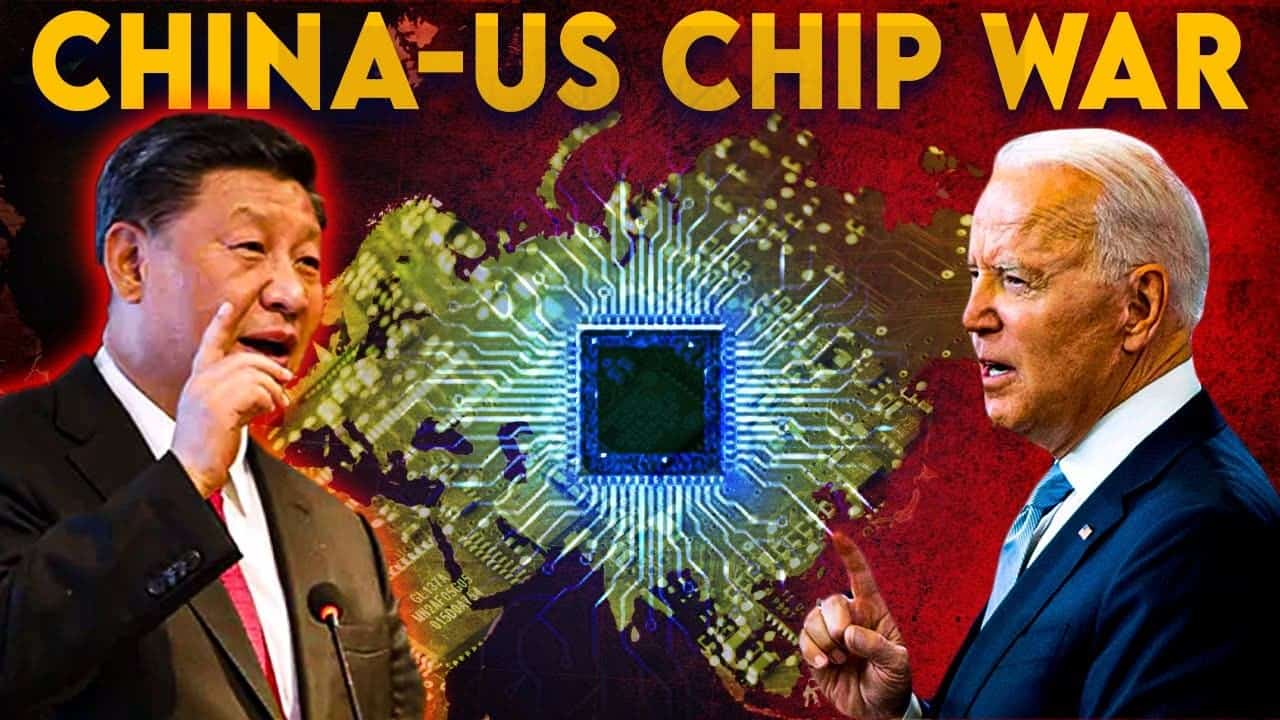Samsung Electronics and SK Hynix, two major South Korean technology companies, recently halted sales of old chip-making equipment over concerns of potential fallout from US sanctions. This decision comes amid a complex geopolitical landscape involving the US, China and South Korea. Samsung and SK Hynix are among the world’s top chipmakers. They often upgrade to newer and more advanced chip-making equipment and sell older devices after they retire them. However, according to the Financial Times, Samsung and SK Hynix have stopped selling old equipment.
Background
According to reports, Samsung and SK Hynix are worried that these old devices will end up in the hands of the “wrong” companies. These “wrong” companies include Chinese and Russian brands that are currently under the US ban. If this happens, the manufacturing company could face a ban from the US government. The United States has previously restricted exports of advanced chip-making technology to some Chinese companies.
Samsung and SK Hynix chose to store these old devices in warehouses instead of selling them to used equipment dealers as usual. After the United States banned the export of chip-making equipment made by American companies or using American technology, some chipmakers began hoarding old equipment out of concern about US sanctions.
There are reports that SK Hynix has recently resumed selling some of its old equipment due to insufficient storage space. It will become increasingly difficult for Korean companies to hold large amounts of old equipment. That’s because this million-dollar piece of equipment can number in the hundreds or even thousands. It is not clear what the future holds for these companies. How will these devices be disposed of?
It is important to note that both Samsung and SK Hynix have been granted exemptions by the US government to continue their chip manufacturing operations in China without facing sanctions. South Korea’s diplomatic efforts played a crucial role in securing these exemptions. The decision to allow Samsung and SK Hynix to operate in China contributes to the stabilization of supply chains for advanced technology products. However, this does not mean that they can sell their technology to banned companies.
Gizchina News of the week
Consequences and reactions
Samsung and SK Hynix are significant players in the world DRAM and NAND flash markets, with a combined market share of nearly 70% in DRAM and 50% in NAND flash. The exemptions granted by the US government are expected to have a positive effect on the global semiconductor supply chain and help maintain stable semiconductor product prices. The decision reflects the complex balance of power dynamics between the US, China and South Korea, highlighting the importance of strategic alliances in the technology sector. However, if they can’t sell their old equipment, it’s only a matter of time before they run out of storage space. They will probably be fighting for a spot soon and that will force them to make some sales.

Future perspective
Samsung and SK Hynix’s ability to import advanced chip manufacturing equipment into their Chinese facilities without restrictions paves the way for future technological advancements and cost-effective manufacturing processes. Although the exemptions allow for continued operations in China, seeking financial support under US regulations may impose restrictions on further investment in Chinese facilities. As for older equipment, these brands cannot continue to stock them. They will likely seek approval to sell these devices to certain brands. If they get official approval from the US, they have nothing to fear.
Conclusion
Samsung Electronics and SK Hynix, two major South Korean technology companies, recently halted sales of old chip-making equipment over concerns of potential fallout from US sanctions. This decision reflects the complex geopolitical landscape involving the US, China and South Korea. Despite receiving exemptions to continue operating in China, these companies face challenges in storing large amounts of old equipment, which could lead to future sales of certain brands if approved by the US government. The implications of these actions highlight the delicate balance of power dynamics in the global semiconductor industry and the importance of strategic alliances in maintaining stable supply chains and prices for semiconductor products.
Samsung and SK Hynix takes relevant action to avoid U.S. sanctions

